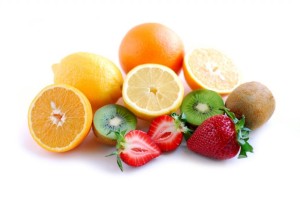 We all know that eating healthy is important. But what does it have to do with work? Well, the healthier you eat, the more focused you can be at work. Check out the article, You Are What You Eat, below:
We all know that eating healthy is important. But what does it have to do with work? Well, the healthier you eat, the more focused you can be at work. Check out the article, You Are What You Eat, below:
“You Are What You Eat
Well, not literally, of course! However, what we eat and drink (and how) plays a significant part in our physical and mental health. It can improve or diminish our performance at work.
The body and mind are very closely interlinked. How we feel physically affects our mental state, and vice versa. So, the things we eat and drink play a huge part in how we feel emotionally. Whilst we all have various basic emotional needs (i.e. emotional nutrition, including friends, interests, privacy, a sense of achievement and being stretched), I am concentrating here on some of the main ways in which things like food and drink can affect our physical and mental health: what does us harm and what does us good. We need to be especially vigilant about treating our body well to support our brain function, energy and mood when we are under more stress or pressure than usual, when stress hormone production is greater.
So, aim for a balanced, nutritious diet to stabilise blood sugar levels and avoid fatigue, low mood and/or irritability, by doing the following:
- Eat three balanced meals a day, and take time to chew it well to assist digestion. Skipping meals and eating too quickly or on the go upsets blood sugar levels, lowers mood and interferes with digestion. If we skip meals, the body reacts as if it is being starved and will store more fat as a result. So, even if we don’t feel hungry, it’s best to have something small and nutritious, like a slice of wholemeal bread, a cereal bar or some fruit, rather than nothing at all.
- Eat whole-grain cereals, nuts, beans and at least five portions a day of fruit and vegetables, and steer clear of refined or processed high-sugar foods, e.g. white bread, white rice, sweets, fast food, etc., choosing things like wholemeal bread, brown rice and wholemeal pasta instead. High-sugar foods are quickly absorbed into the bloodstream and, whilst creating an initial buzz of energy, are soon reduced by the body as it tries urgently to combat the sugar spike and rebalance sugar levels. This can make us feel tired and low. Slow-release (low glycaemic index) foods release a steady stream of sugar and maintain better mood and energy levels. Beware of taking in too much salt too, as this is well known to increase blood pressure which in turn can lead to heart problems. There is sufficient salt in foods without needing to add extra.
- Include oily fish in your diet, or take Omega 3 supplements. Research shows Omega 3 has a significant part to play in stabilising mood.
- Drink at least 2 litres of water (or stimulant free herbal teas) each day, and limit caffeine intake (coffee, tea and colas) to 3-4 cups per day. We lose at least 2 litres of fluid on an average day through breath, perspiration and urine, so it’s really important to maintain fluid levels in order to avoid becoming dehydrated. Drinking more than the recommended unit levels of alcohol can cause significant physical and mental health problems, so we need to be careful with that too. Alcohol above those recommended levels becomes a depressant and lowers mood.”
Contact me if your office needs legal training. And remember if you eat better, you’ll work better. Have a fantastic weekend!




